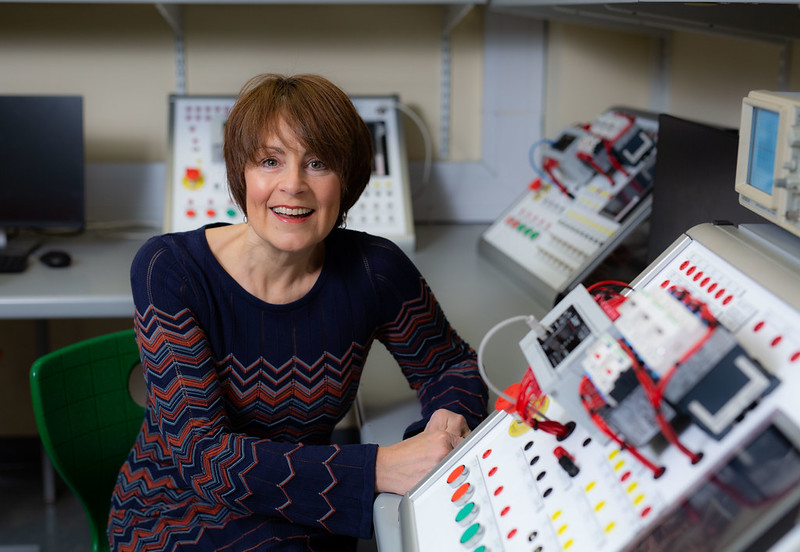

Education
LIT appoints Dr Maura Clancy as Dean Faculty of Applied Sciences & Technology
Dr Maura Clancy – Dean for the Faculty of Applied Sciences & Technology and Director of Progression Pathways pictured above. Picture: Alan Place.
LIT appoints Dr Maura Clancy as Dean Faculty of Applied Sciences & Technology
Limerick Institute of Technology’s former Head of Electrical & Electronic Engineering, Dr Maura Clancy, has been appointed LIT’s new Dean, Faculty of Applied Sciences & Technology and Director Progression Pathways.
A native of Esker, Castleblakeney in Co. Galway, Dr Clancy is an advocate of lifelong learning.
A business owner with business qualifications from Galway-Mayo Institute of Technology (GMIT), Maura returned to full-time education in 2000. She studied mathematics and English at the National University of Ireland, Galway (NUIG), culminating in a PhD in Mathematics in 2009 and was awarded an Irish Research Council scholarship to research Mathematics.
Dr Clancy has worked in engineering mathematics and statistics for the past 12 years and specialises in algebraic topology.
She served as Director of the Maths Support Centre at NUI Galway from 2009 to 2011 and developed maths and statistics support modules for the School of Mathematics, Statistics and Applied Mathematics. She also served as a mathematics consultant for a project with Anne Shannon & Associates LLC, Oakland, California, in conjunction with the University of Nottingham and UC Berkeley, which aimed to improve the standard of mathematics and statistics teaching American Schools.
Dr Clancy began teaching mathematics and statistics in the Department of Electrical & Electronic Engineering, LIT, in 2012 and was appointed Head of Department in 2019, before being named Dean for the Faculty of Applied Sciences & Technology and Director of Progression Pathways in 2021.
LITs former Head of Electrical & Electronic Engineering Dr Maura Clancy has been appointed LIT’s new Dean, Faculty of Applied Sciences & Technology and Director Progression Pathways.
Congratulations Maura, wishing you all the best in your new role. https://t.co/YhFnteYJhe
— LIT (@LimerickIT) February 23, 2021
Speaking about her role as Dean, Faculty of Applied Sciences & Technology and Director of Progression Pathways, Dr Clancy said, “Science and technology are the requisites for a thriving economy, particularly a knowledge-based economy. I am delighted to have the opportunity to help shape developments over the following number of years. Fostering an interest in these subjects is incumbent on us all; addressing future skills needs is intrinsic to growing the number of learners attracted to Science and technology. For example, the average annual number of ICT vacancies is 8,000, with an average of 3,000 graduates. Average performance in these areas is not enough if we are to achieve our national enterprise strategy.
“We must continue to tackle the issue of gender imbalance; we must ensure equality, diversity, and access for all. Our programmes must be responsive, agile, and innovative. There is an excellent team here at LIT, and I look forward to working with them to fulfil the needs of all our stakeholders.”
Referring to her role as Director for Progression Pathways, the newly appointed dean added, “LIT has always fostered relationships with the Further Education and Training sector; as Director of Progression Pathways, my job is to deepen collaboration and ensure a closer working relationship for the benefit of the learner. There is a need to expand access provision and clarify progression routes to enable learners to transition from Levels 4 and 5 to Levels 6, 7, 8 and beyond. This is a role very close to my heart; the opportunities are immense and rewarding.”
For more info on Limerick Institute of Technology, go HERE
For more stories on Limerick Institute of Technology, go HERE














